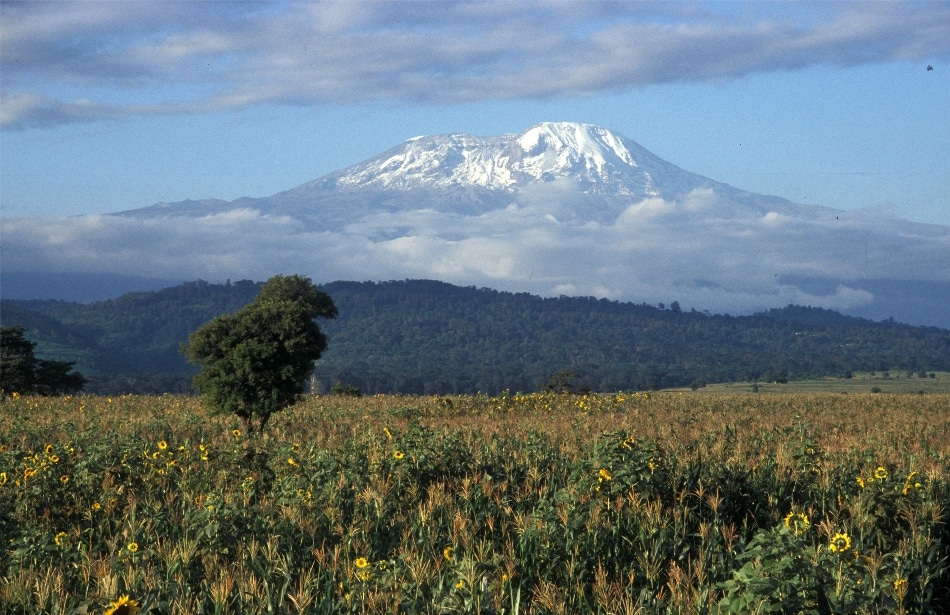Apr 1 2019
The rising land use in tropical mountain areas has resulted in a fall in biodiversity and variations in the ecosystems. The intensity of these variations is mainly dependent on climatic conditions.
 A view of Kilimanjaro, with the maize fields at the foot of the mountain in the foreground. (Image credit: Andreas Hemp)
A view of Kilimanjaro, with the maize fields at the foot of the mountain in the foreground. (Image credit: Andreas Hemp)
This is the outcome of an international research on Kilimanjaro, carried out under the directions of Würzburg University. Researchers from the Senckenberg Biodiversity and Climate Research Center also played an important role in the research. As described in the scientific journal Nature, ecosystems with harsh climatic conditions at the lower and higher altitudes are most adversely affected by land use.
Kilimanjaro—the Roof of Africa—is the habitat of around one million people, who grow bananas, maize, coffee, and several other crops on the mountain’s slopes and at its foot. In addition, Kilimanjaro serves as a refuge for the biological diversity that is subjected to mounting pressure due to human land use. So far, only little is known about the impacts of land use on biodiversity and ecosystem functions of tropical mountains, for example, Kilimanjaro.
To explain this question, a team of 50 international scientists spent eight years researching the species diversity of microorganisms, plants, and animals, as well as the related ecosystem functions on the southern slopes of Kilimanjaro. With reference to the number of recorded species groups and ecological functions, and also the explored elevation gradient between 850 and 4550 m a.s.l., the research headed by Dr Marcell Peters and Prof. Dr Ingolf Steffan-Dewenter of Würzburg University is inimitable in the world.
Overall, our data show that land use on Kilimanjaro causes the loss of a significant proportion of biodiversity and leads to serious changes in ecosystem functions, such as pollination or litter decomposition. However, the extent of these negative changes varies depending on elevation and the associated climatic conditions.
Prof. Dr Katrin Böhning-Gaese, Senckenberg Biodiversity, Climate Research Center, and Goethe University.
Böhning-Gaese is the speaker of the research unit, which is sponsored by the German Research Association (Deutsche Forschungsgemeinschaft, or DFG).
The land use particularly has a negative impact on ecosystems with severe climate conditions, for example, the hot and dry savanna zone at the foot of Kilimanjaro. Here, maize is grown extensively and about 50% of the species are locally lost, and the majority of the 30 explored ecosystem functions face considerable decrease.
Conversely, ecosystems at mid-elevations with warm temperatures and high precipitation experience less impact by land use. In these regions on the slopes of Kilimanjaro, where bananas, coffee, and several other products are grown—generally using conventional cultivation methods—fewer species are lost due to land use and the ecosystem functions vary to a much lesser degree when compared that in the savanna.
“The results help us to better understand how land use and climate jointly affect the biodiversity of montane ecosystems. In addition, they show that both factors should not be considered separately and that the consequences of climate and land- use changes for biodiversity and ecosystems could mutually increase each other in the future,” adds Böhning-Gaese.
The scientists suggest that the data obtained from this research may also be used as a foundation for creating and executing immediately required approaches for sustainable use of the ecosystems on Kilimanjaro. This would be advantageous to the one million inhabitants of the region, who rely upon nature’s sustained services to support their existence in the future.